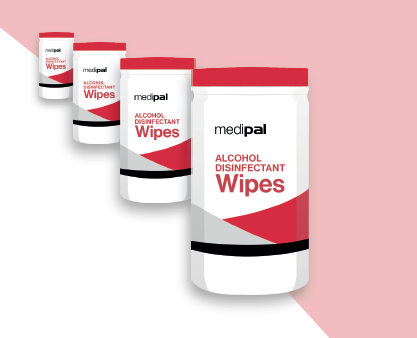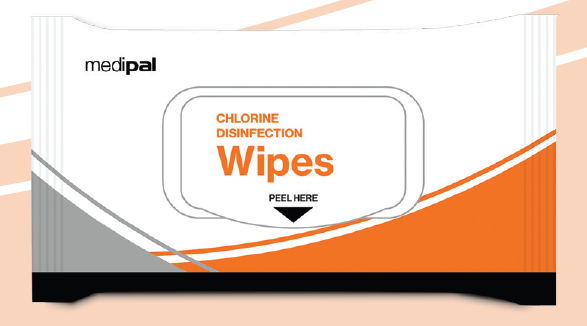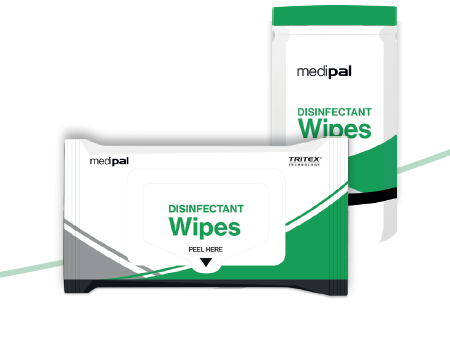Clostridium difficile is bacteria that can be found in the intestine and cause bowel problems. We’ve put together this short guide of key information, with links for further guidance.
WHAT IS CLOSTRIDIUM DIFFICILE?
Clostridium difficile – often known as C. difficile or C. diff – is a bacteria that can be found in the intestine and cause serious bowel problems of both healthy people and those with an illness. An infection occurs when there is an imbalance of bacteria in the intestine, as the good bacteria usually helps to keep C. diff under control. However, when the number of C. diff rises it can cause symptoms ranging from diarrhoea to inflammation of the colon. C. diff infections are contagious and can most commonly be found in people who have recently been treated with antibiotics. Another course of antibiotics is typically the main way to treat the infection.

WHAT ARE THE SYMPTOMS OF A CLOSTRIDIUM DIFFICILE INFECTION?
Due to the imbalance of good and bad bacteria in the intestine, C. diff may produce toxins that irritate the bowel’s lining and cause cramping pains. Other common symptoms of an infection (listed in no specific order) are:
- Diarrhoea
- A high temperature of 38°C or above
- Feeling sick (nausea)
- Being sick (vomiting)
- Stomach cramps and pains
- A loss of appetite
Having diarrhoea may also lead to dehydration, which can be diagnosed by feeling thirsty, dizzy or lightheaded, tired, having a dry mouth, lips and eyes, and urinating fewer than four times a day.

HOW TO PREVENT A CLOSTRIDIUM DIFFICILE INFECTION?
C. diff bacteria can be picked up and spread easily however, with good basic hygiene the risk of contracting an illness from it is dramatically reduced.
Regularly washing your hands with soap and running water is vital in killing this bacteria and preventing its spread, especially between treating patients, before preparing and eating food, and after going to the toilet.
The immediate environment in which a patient or care service user is staying should also be routinely sanitised with chlorine-based products. This includes chairs, bed rails, and television remotes.

WHAT ARE THE TREATMENT OPTIONS?
C. diff infections typically respond well to treatment, with most people able to make a full recovery after two weeks. Mild infections can usually be treated alongside the following advice:
- Drink plenty of fluids to avoid dehydration.
- If hungry, eat plain foods, such as rice, pasta, and bread.
- Take paracetamol for a fever or stomach pain.
Remember, patients will be infectious while they have symptoms and if prescribed antibiotics, they must finish the entire course even if they show signs of improvement. You should encourage patients to avoid going back to work or mixing with other people until they’ve been free from diarrhoea for 48 hours.
Very rarely a C. diff infection can lead to more serious conditions, including toxic megacolon, a swelling of the bowel that can be fatal. This may require surgery to remove part of the bowel.
Complications of C. diff infections are most likely in people who are 65 years or older, have underlying health conditions, or are undertaking a prolonged stay in hospital. This means that recognising a change or worsening of symptoms in your patients is vital.

ARE THERE ANY VULNERABLE GROUPS?
Infections can affect anyone however, those most at risk are people 65 years or older, have underlying health conditions like inflammatory bowel disease or cancer, or have a weakened immune system.
People who have had an extended stay in a care home or hospital may be at a higher risk of contracting an infection. Similarly, those who have had surgery on their digestive system, have been on long-term antibiotics, or take a proton pump inhibitor medication to reduce their stomach acid may be more at risk.

WHAT PRODUCTS ARE EFFECTIVE?
While handwashing with soap and running water is one of the key ways to prevent the transmission of C. diff, Chlorine is the most effective chemical to kill spores produced by the bacteria; more so than regular detergents.
Our Chlorine wipes work across non-porous hard surfaces, equipment, and non-invasive medical devices. They’re less toxic and corrosive than other chlorine-based products and come ready to use, straight from the packet.

WHERE TO FIND MORE INFORMATION?
There are many useful resources available on both the C. diff bacteria and the infection it causes. The below websites provide advice and information on avoiding the bacteria, spotting symptoms, and how to treat an infection.

MANAGING THE THREAT OF A CLOSTRIDIUM DIFFICILE INFECTION
Although C. diff infections respond well to treatment, with many people making a full recovery after two weeks, it’s important we all stay vigilant in avoiding the bacteria.
Regular hand washing with soap, particularly before preparing and eating food or after going to the toilet, as well as keeping workplaces and patient areas disinfected with chlorine-based disinfectants, will dramatically reduce outbreaks.
Join us in the fight against Clostridium difficile infections. Download our infographic to help us raise awareness and prevent the spread of this bacteria.





